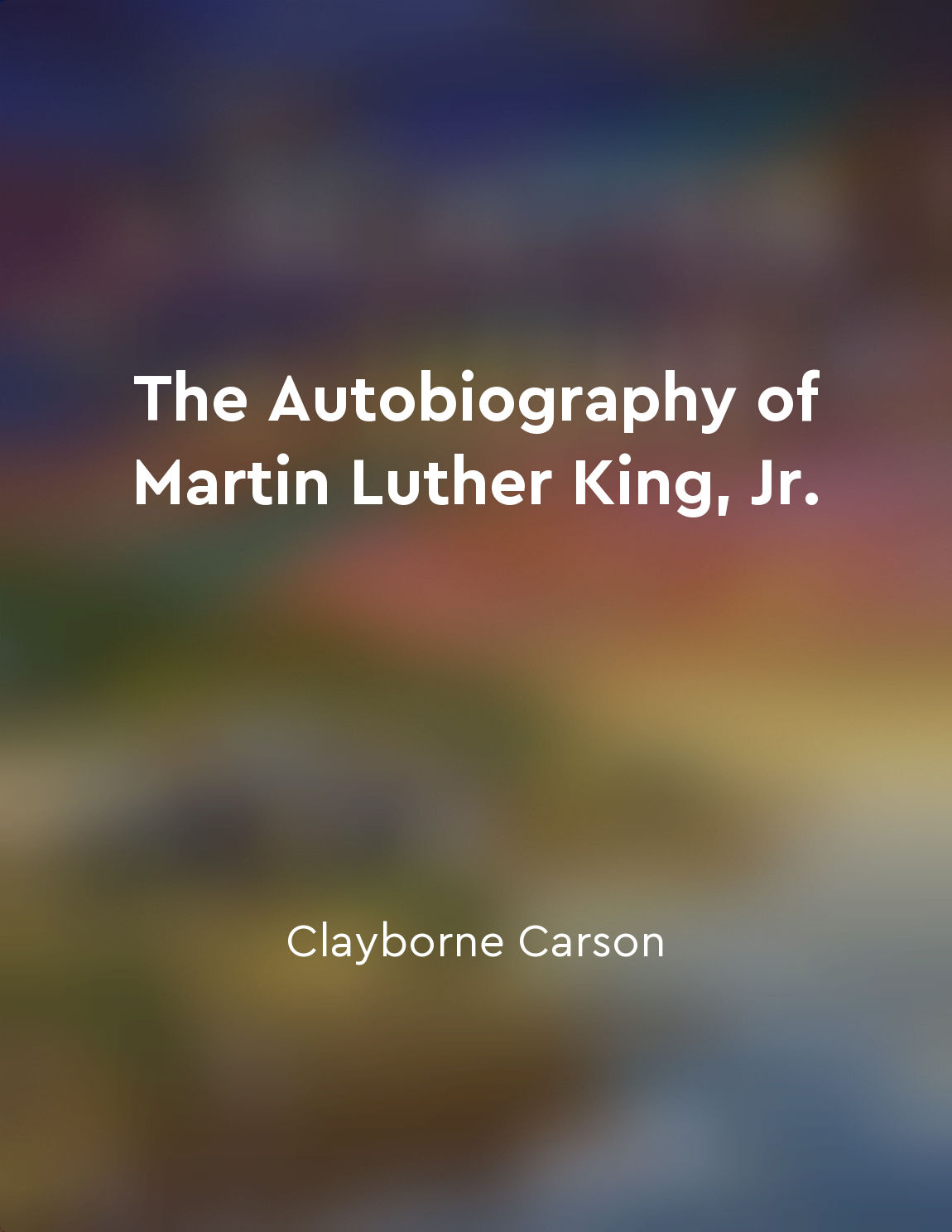Believed in the power of peaceful protest to bring about change from "summary" of The Autobiography of Martin Luther King, Jr. by Clayborne Carson
Throughout his life, Martin Luther King Jr. held a firm conviction that peaceful protest had the ability to enact significant change within society. He believed that nonviolent action was not only a morally superior approach, but also a strategically effective method for achieving justice and equality. King understood that by engaging in peaceful demonstrations, sit-ins, and boycotts, oppressed individuals could assert their rights and demand justice without resorting to violence. King's belief in the power of peaceful protest was rooted in his deep commitment to the principles of nonviolence and civil disobedience. He saw nonviolent resistance as a way to confront injustice while maintaining the moral high ground, thereby garnering sympathy and support from the broader public. By refusing to respond to violence with violence, King and his followers sought to expose the brutality and injustice of their oppressors, compelling them to confront the moral contradictions of their actions. Moreover, King believed that peaceful protest had the potential to bring about lasting systemic change by challenging unjust laws and social norms. Through acts of civil disobedience and mass mobilization, King aimed to disrupt the status quo and force those in power to address the grievances of the marginalized and oppressed. He saw peaceful protest as a means of creating pressure for legislative and social reforms, thereby advancing the cause of justice and equality for all. In King's view, peaceful protest was not only a tactic for achieving immediate gains, but also a long-term strategy for building a more just and equitable society. By engaging in nonviolent resistance, individuals could not only challenge specific instances of injustice, but also lay the groundwork for broader social transformation. King believed that the power of peaceful protest lay in its ability to inspire others to join the struggle for justice, creating a movement that could effect enduring change.- King's steadfast belief in the power of peaceful protest to bring about change reflects his unwavering commitment to nonviolence, justice, and equality. By advocating for nonviolent resistance as a transformative force in society, King sought to empower individuals to confront injustice, challenge oppression, and work towards a more just and equitable world. Through his leadership and example, King demonstrated the enduring power of peaceful protest as a catalyst for social change.
Similar Posts
He risked his life to tell the truth
The man stood before the judge, his heart pounding in his chest. He knew the consequences of his actions, yet he refused to bac...

Founded the Southern Christian Leadership Conference
In the struggle for civil rights, King saw the need for a unified front among African American leaders in the South. He believe...
The North promised a chance for a better life
The North held out the promise of a better life that the South did not. It was a simple but powerful idea that drew thousands o...
Industrialization transformed economies and societies
The shift from agrarian societies to industrialized economies marked a significant turning point in human history. With the adv...

Trust in the power of love
The power of love is a force that has the ability to transform the world around us. It is a force that can bring about change, ...
Journey towards selfdiscovery and personal growth
The journey I embarked on towards understanding myself and growing as an individual was one filled with challenges and revelati...

